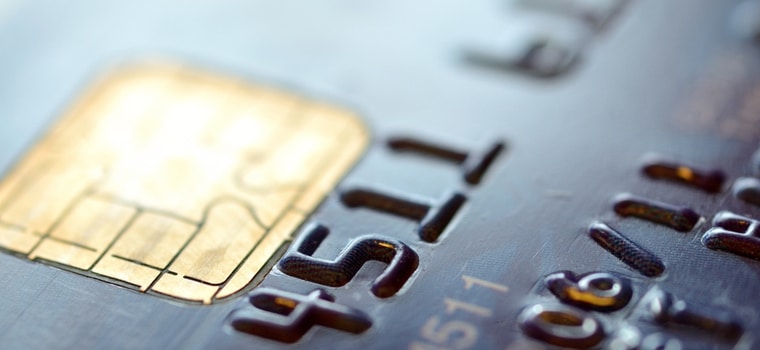Most credit cards have between 14 and 19 digits. Credit cards that belong to the payment networks for Visa, Mastercard and Discover have 16 digits. Cards that are part of the American Express payment network have 15 digits.
Credit card numbers are allocated to credit card issuers by the American National Standards Institute (ANSI) and the International Organization for Standardization (ISO). Each credit card issuer has 1 trillion possible account numbers.
Each number represents different information, including your card issuer, account information and a security validation number.
What Do The Numbers on a Credit Card Mean?
Credit cards and debit cards that follow ISO standards include the following information about the card’s issuer:
First Digit: Industry Identifier
The first digit of your credit card number is called the Major Industry Identifier (MII). This number provides general information about the card issuer with each number representing a different industry:
0 – ISO/TC 68 and other industry assignments
1 – Airlines
2 – Airlines and financial
3 – Travel and entertainment
4 – Banking and financial
5 – Banking and financial
6 – Merchandising and banking/financial
7 – Petroleum
8 – Healthcare and telecommunications
9 – Open for assignment.
Note that the first digit is also assigned to different card networks.
- Visa: Card number begins with a 4 and has 16 digits.
- Mastercard: Card number begins with a 5 and has 16 digits.
- American Express, Diners Club and Carte Blanche: Card numbers begin with a 3 and have 15 digits.
- Discover: Card number begins with the number 6 and has 16 digits.
Digits 2-6 Digits: Card Issuer Identifiers
These five digits, working together with the first digit MII, identify the card issuer by their issuer’s identification number (IIN), also known as a bank identification number (BIN). The number set represents the bank or credit union and a corresponding type of credit card product.
For example, the IIN for Capital One Signature Visa is “414709”. It’s important to note that each large card issuer can have many IINs if they offer a large portfolio of credit cards.
Here are some example IINs from 12 major credit card issuers.
- American Express – 379741 American Express Credit
- Bank of America – 480011 Bank of America Visa Gold
- Barclays US – 559309 Barclays World Mastercard
- Capital One – 414709 Capital One Signature Visa
- Chase – 414720 Chase Signature Visa
- Citi – 542418 Citibank Platinum Mastercard
- Credit One – 444796 Credit One Bank Platinum Visa
- Discover – 601101 Discover Rewards
- Synchrony Financial – 521333 Synchrony Credit Card
- USAA – 549123 USAA Platinum Mastercard
- US Bank – 403766 U.S. Bank Visa
- Wells Fargo – 446542 Wells Fargo Platinum Visa
Digits 7-18 Are Account Numbers
The rest of the digits are linked to your account number. When your card is lost or stolen, you won’t need to open a new account. Instead, your account number will change and you’ll get a replacement credit card with the new number.
The Final Digit Is a Validator
The final digit of your credit card number is the check digit, also known as the “checksum”
The purpose of the check digit is to confirm the initial numbers on your credit card. This process verifies your credit card numbers for accuracy and ensures the number is valid.
The checksum provides protection against any attempts to invent credit card numbers as only 10% will be valid. The digit also helps in preventing mistakes whenever a credit card number is entered manually.
Other Numbers on a Credit Card
Your credit card also has a card verification code (CVC), which is also known as a card verification value (CVV). The CVC consists of three digits which are found on the back of all Visa, Mastercard and Discover cards next to the signature box. The code for American Express is four digits and they appear on the front of the card.
The purpose of the CVC number is to add an extra layer of verification when you make purchases without your physical cards, such as for telephone and online transactions. These are known in the credit industry as “card not present” transactions.
“Card not present” transactions are attractive to scammers because they know it is difficult for merchants to verify your identity over the phone or online. These sellers can’t simply look at your driver’s license and confirm you are who you say you are.
The CVC code was initiated to combat this sort of fraud. The number helps online merchants verify your identity by confirming you have the physical card in your hand. A hacker might be able to access your card info, but without the corresponding CVC code, the credit card number should be useless so long as the merchant properly asks for the code number.
The Bottom Line
Credit card numbers contain 16 digits with Visa, Mastercard and Discover and 15 numbers on American Express. Credit cards outside of these networks can have more numbers, up to a maximum of 19.
Credit card numbers are more than just a random set of digits. Each digit contains information about your card issuer, your account as well as a security validation number.
Your credit card also has a CVC code on the back to provide another validation method to protect you, particularly when you make credit card purchases online or over the phone.




